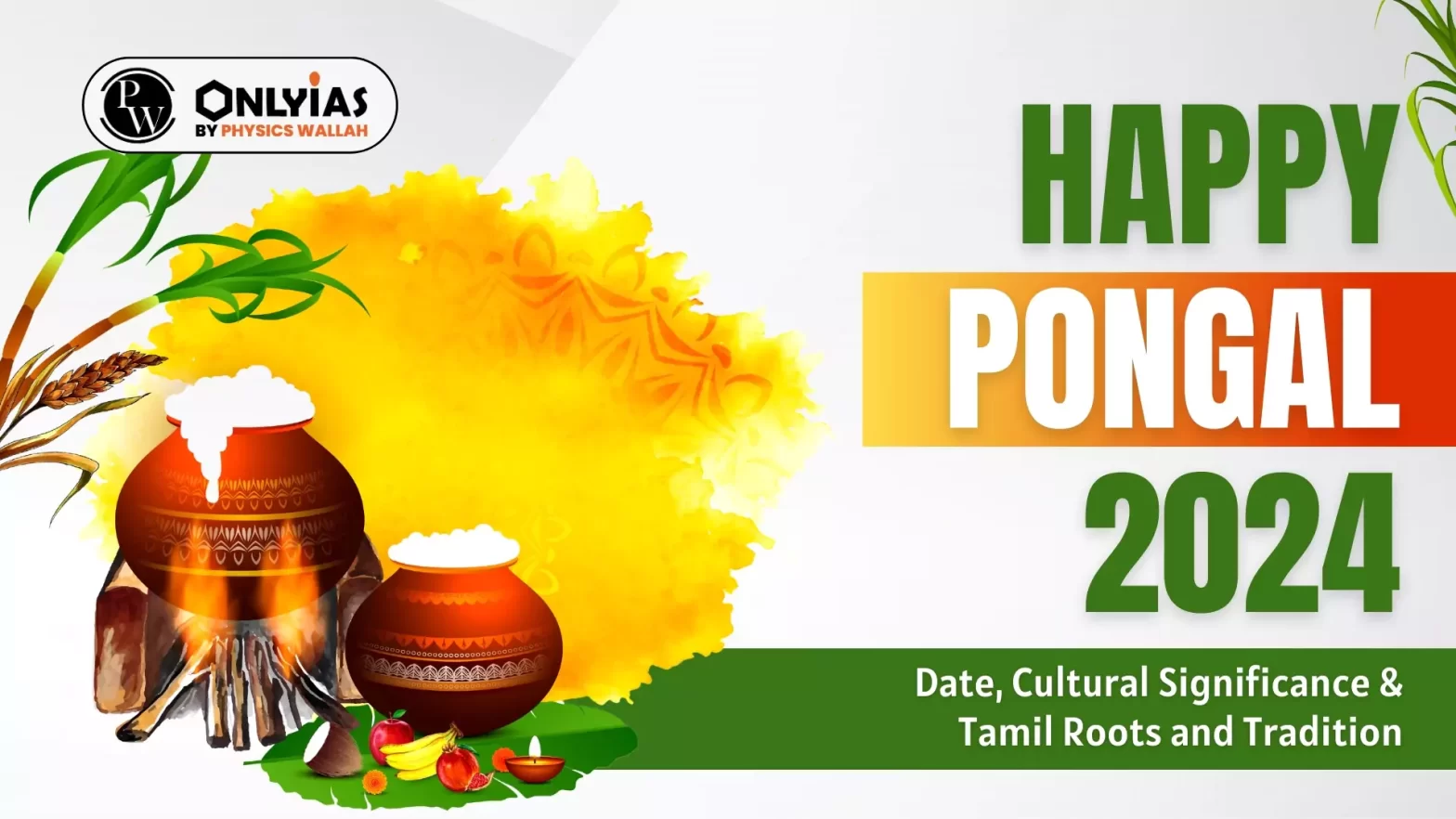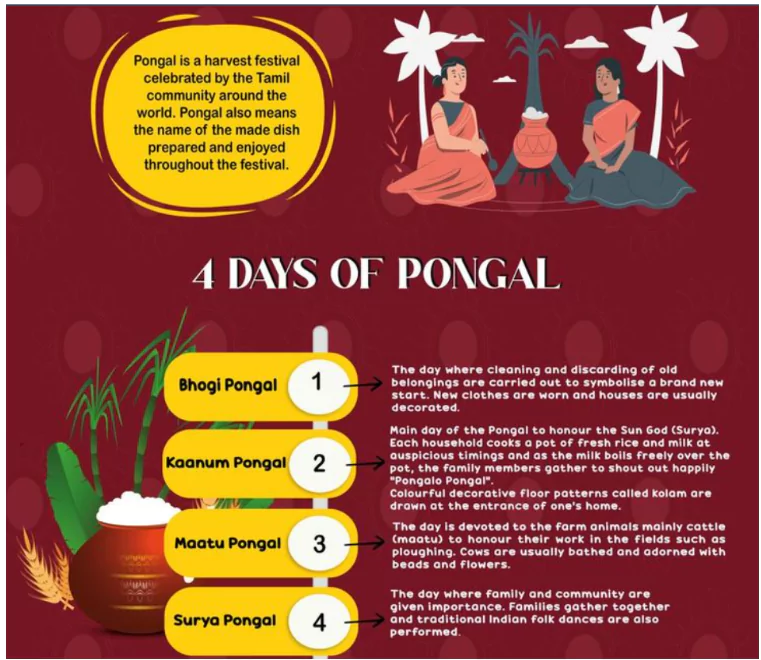Pongal Festival 2024: Celebrate harvest abundance, sun's transition, and cultural unity in Tamil Nadu. Join the vibrant four-day festivities from January 15 to 18.

Context: Pongal celebrations in 2024, will be starting from January 15 and go on till January 18.
The festival is observed every year in January, during the Tai month of the Tamil solar calendar, and is dedicated to the Sun God, marking the beginning of Uttarayan and the transition of the sun into the Capricorn zodiac, symbolising the end of winter and the onset of the harvest season.
The festival is named after the traditional sweet dish Pongal (boiling over). It’s a special rice dish cooked with freshly harvested crops, milk, and jaggery.
This year, the four-day festival will commence on January 15 with Bhogi Pongal, followed by Thai Pongal on January 16, Mattu Pongal on January 17, and Kannam Pongal on January 18.

Pongal is known by various names, each reflecting its regional significance and diverse cultural expressions. Here are some of the popular names of Pongal:
To Read More About India’s Harvest Festivals, Click Here
Pongal boasts of a rich and fascinating history, deeply intertwined with agricultural practices, cultural traditions, and astronomical observations.
Pongal, a vibrant four-day harvest festival celebrated by Tamils across India and the world, holds immense significance that transcends the realm of mere festivities. It is deeply rooted in tradition which shows the armonious relationship between humans and nature.
In other words, Pongal is more than just another harvest festival. It’s a celebration of life, renewal, and the interconnectedness of humans and nature. It’s a time to honor the sun, express gratitude, strengthen community bonds, and embrace the promise of new beginnings.
To Read More About Lohri, Click Here
To Read More About Makar Sankranti, Click Here
To Read More About Magh Bihu, Click Here
| Must Read | |
| NCERT Notes For UPSC | UPSC Daily Current Affairs |
| UPSC Blogs | UPSC Daily Editorials |
Pongal celebrations in 2024 will start on January 15 and continue till January 18.
"Pongal" refers to the traditional sweet dish prepared during the festival, symbolizing abundance and the sweetness of life.
In Tamil Nadu, Pongal is a four-day festival with rituals, kolams, dance, and the preparation of the Pongal dish.
Pongal is known as Thai Pongal, Poki Pongal, Hadaga Festival, Uzhiya Varthalai, Bhogi, and Sankranti in various regions.
Pongal has ancient Dravidian roots, marking the harvest and expressing gratitude to the sun. It symbolizes life, renewal, and community bonds.

<div class="new-fform">
</div>